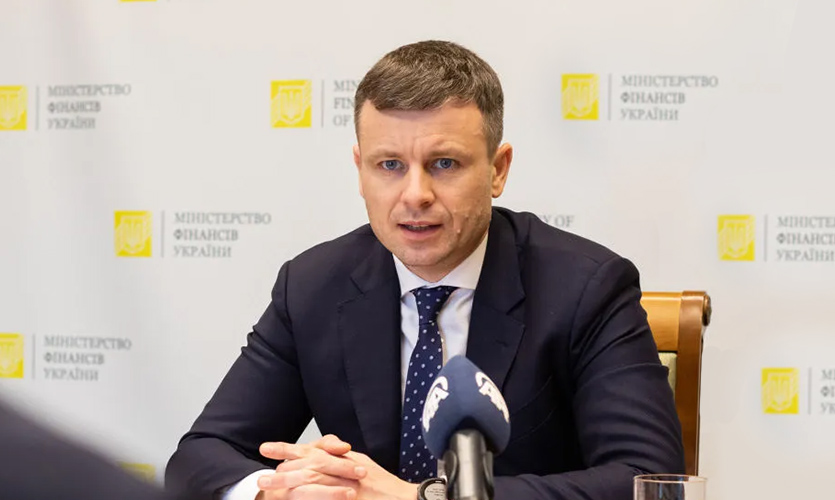Amidst the Russia-induced armed conflict still prevailing in Ukraine, the country has asked its creditors to freeze debt payments for a period of two years, so it can utilise the money to defend itself.
Ukraine has called its efforts a liability management exercise, and asked the creditors to act on the proposal by August 9. Reportedly, this will help Kyiv save a written document for the bondholders.
The official creditors to Ukraine have suspended the paybacks of credits, and have also asked the bondholders to accept the country’s request.
Big economies supporting Ukraine, including Canada, France, Germany, Japan, the UK, and the US, have agreed to have a coordinated suspension of debts with the other countries starting in August. They have already started working towards freezing the debt till the end of 2023.
Ukraine’s Total Debt
World Bank data suggests that Ukraine had a $130 billion external debt outstanding by the end of 2020.
The country has decided to use two euro-denominated securities and eleven dollar-denominated bonds subject to the debt embargo. In total, Ukraine has designated $20 billion in international bonds. Furthermore, it has attached a warrant to GDP growth in the event of a restructure. This came to light during a debt restructuring in 2015, and was added as a sweetener to its creditors.
Eurobond Creditors
Ukraine’s major bonds are with huge fund managers. According to the EMAXX, the world’s largest asset manager – BlackRock – holds $1.2 billion across the US and UK. In contrast, Eaton Vance with AllianceBernstein owns $580 million in bonds, while PIMCO owns $300 million.
While BlackRock denied any comment, PIMCO, Eaton Vance, and AllianceBernstein did not reply immediately.
Ukraine’s Public Finances
Russia attacked Ukraine on February 24, which resulted in a massive hit on world economies. This year’s economic contraction is expected to range between 35 and 45 percent, according to experts.
Estimates suggest that Ukraine has a fiscal deficit of $5 billion, or 2.5 percent of pre-war GDP (a month). This pushes Ukraine’s deficit to 25 percent of the GDP, compared to just 3.5 percent before the conflict.
Noteworthy, Ukraine has gathered overwhelming global support. As stated by the finance ministry, since the advent of war up to July 12, Ukraine received $12.7 billion in assistance from international financial institutions, other government agencies, and many other sources. Furthermore, Kyiv was able to secure approximately the same amount through central bank finances and other domestic governmental bonds. The majority of the amount was received from the issuance of their “War Bonds”.
According to Moody’s, Ukraine’s tax revenue has declined by more than a third since the conflict began. On the other hand, government expenditure has risen by about 36 percent during the same period.The expenditure on defence has risen by 319 percent, forming the major portion of the current expenses.
The establishment of a new account with the International Monetary Fund (IMF) has aided in the channeling of significant resources through donations in Ukraine. SDR donations have further helped the country in its balance of payment and budget, which has put off some of the burden.
How Will The Debt Freeze Affect Ukraine?
Ukraine is receiving great support from the major economies of the world. With the kind of relations it shares with other countries, Ukraine might soon get a debt freeze. But will there be any consequences?
The debt suspension will help Ukraine sustain the money and use it for wartime necessities. According to Finance Minister Sergii Marchenko, the debt freeze will help Ukraine overcome the monthly fiscal gap of $5 billion. Additionally, the country won’t have to use the international aid it is receiving to pay for the currency bond maturities during the persisting financial crisis.
Chief economist Stuart Culverhouse said that as many people believed that Ukraine would soon fall due to the economy, considering the current situation as a stalemate makes sense. But the question remains the same. If Ukraine receives a stalemate on debt payments, how will Kyiv manage to repay the loan back later?
The Ukrainian government and other creditors will negotiate on the terms and conditions and will eventually structure new conditions for the bonds. This could include maturity extensions, pay cuts, or a combination of both.
“This won’t be a permanent scar for Ukraine in order to regain market access.” Everyone can accept this is a consequence of Russia’s aggression, and creditors will be prepared to look at Ukraine more favourably,” remarked Culverhouse.
Read more: Russia Resumes Gas Supply To Europe After EU Proposes Plans To Cut Use
Work In Progress
Meanwhile, Ukrainian authorities have sent a formal consent solicitation to their bondholders to change some of the terms and conditions regarding the contract. Further, Ukraine’s Finance Ministry is in talks with the creditors regarding the details and wider points of the proposal.
Last week, Ukraine’s Governmental Energy Company Naftogaz asked their creditors for a two year debt payment freeze. The proposal bred some issues with the creditors who thought that a two year period would be very long.
One of the creditors responded, “Why two years? It’s not clear, but it doesn’t seem the war is going to end soon, and it is very hard to do a debt sustainability analysis in this situation. It is not clear if this (sovereign) proposal is going to be widely accepted by creditors, there might be some push back from creditors to cut down the payment freeze.”










